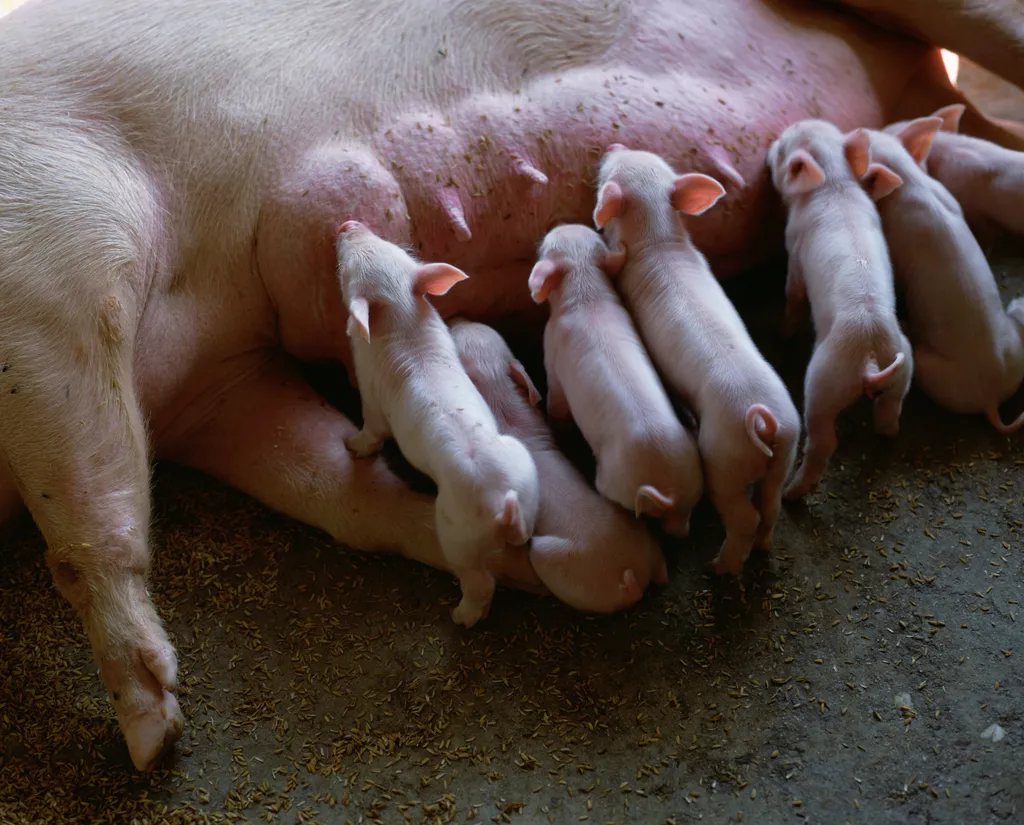In the relentless pursuit of solutions to combat devastating swine diseases, researchers have uncovered a promising avenue that could reshape the future of pig farming and the broader agricultural industry. A recent study led by Tingting Hu from the Department of Animal Husbandry and Veterinary Science at Chengdu Agricultural College in China has demonstrated that complex medium-chain triglycerides (CMCTs) can significantly mitigate the impact of Porcine Epidemic Diarrhea Virus (PEDV) in piglets. This discovery could have far-reaching implications for the swine industry, which has long grappled with the economic and logistical challenges posed by PEDV.
PEDV is a highly contagious virus that causes severe diarrhea, vomiting, and dehydration in piglets, often leading to high mortality rates. The economic toll of PEDV outbreaks is substantial, with millions of dollars in losses annually due to decreased productivity and increased veterinary costs. Current vaccines have shown limited efficacy, underscoring the urgent need for innovative therapeutic interventions.
The study, published in the journal *Viruses* (translated to English), explored the potential of CMCTs, a combination of glyceryl tricaprylate/caprate (GTCC) and glycerol monolaurate (GML), to combat PEDV infection. The researchers found that CMCTs not only alleviated clinical symptoms such as diarrhea and vomiting but also prevented weight loss in infected piglets. “The results were quite remarkable,” said Hu. “We observed a significant improvement in the overall health and well-being of the piglets treated with CMCTs.”
The mechanism behind this therapeutic effect is multifaceted. CMCTs were found to enhance anti-inflammatory and antioxidant responses, reduce oxidative stress, and strengthen the intestinal barrier function. This multifaceted approach is crucial for combating PEDV, as the virus targets the intestinal lining, leading to severe inflammation and tissue damage.
Moreover, the study revealed that CMCTs modulated the gut microbiota, increasing beneficial bacteria such as *Streptococcus* and *Ligilactobacillus* while decreasing pathogenic *Escherichia-Shigella*. This balance is essential for maintaining gut health and preventing secondary infections.
The implications of this research extend beyond the immediate benefits for piglets. The swine industry is a critical component of the global food supply chain, and any advancement in disease management can have a ripple effect on food security and economic stability. “This study opens up new possibilities for the development of natural, effective treatments for PEDV and potentially other swine diseases,” Hu added.
As the agricultural sector continues to evolve, the integration of advanced scientific research into practical applications becomes increasingly vital. The findings from this study could pave the way for the development of novel therapeutic strategies that are not only effective but also sustainable and economically viable. For the swine industry, this means a potential reduction in losses and an improvement in overall productivity, which could have a profound impact on the global market.
In the broader context, the research highlights the importance of interdisciplinary collaboration between veterinary science, microbiology, and agricultural technology. By leveraging the latest scientific advancements, the industry can better address the challenges posed by infectious diseases and ensure the health and well-being of livestock.
As we look to the future, the potential of CMCTs and similar compounds to revolutionize disease management in swine farming is immense. This study not only provides a glimpse into the possibilities but also underscores the need for continued investment in research and development. The journey towards a more resilient and sustainable agricultural sector is ongoing, and every discovery brings us one step closer to that goal.

